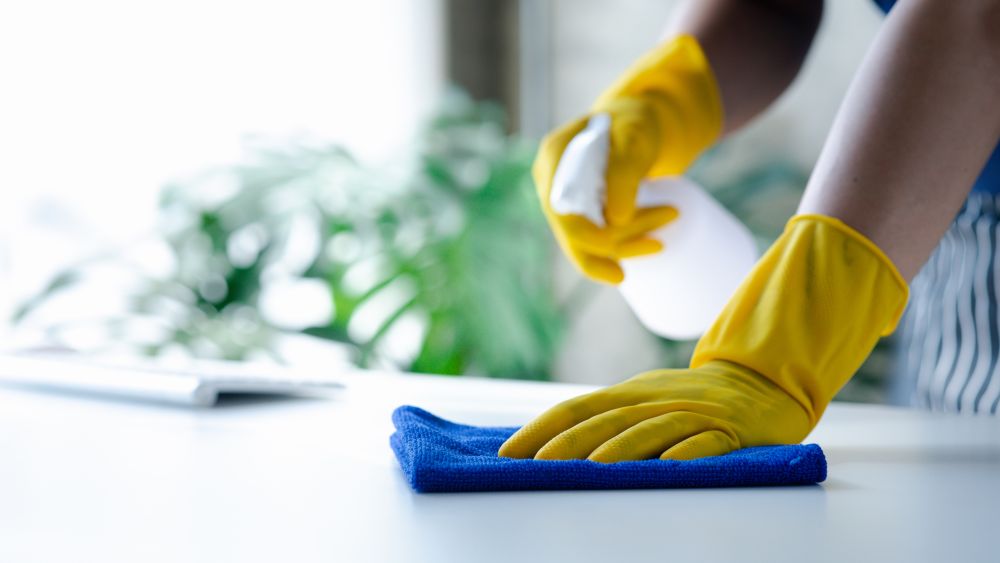A long term real estate investment is the best way to establish real wealth and set yourself up for impressive returns and earnings. Holding a property will allow you to gather more equity and make more money when you do eventually sell. It will come as no surprise that the largest expense many rental property owners face is maintenance. Repairs will be necessary on a pretty routine basis when you own an investment property, and when you're maintaining your property with the intention of keeping it over a long period of time, those quick and easy Band-Aid fixes won't work. You need to invest in the maintenance of that property. Maintaining your Philadelphia rental property over time will increase your asset's value and provide for better tenant retention. It will ensure that your property can sustain itself as a rental home for years and even decades to come. You also want your investment to grow in value. Deferred maintenance only harms the value of your investment and costs you money in the long term. Preventative maintenance will help you have a better investment experience. Here are some of the things you need to think about as you're maintaining your property over time.
Preventative Maintenance is Cost Effective
Most investors understand the importance of good maintenance practices. You couldn't successfully rent out a home if you didn't. When we're talking about maintaining a property over the long term, it's essential to think about preventative maintenance. This must be a priority. A good preventative maintenance plan will reduce the number of emergency repairs you have to make and extend the lifespan of some of your home's most expensive functions. You don't want to keep fixing the same things. You don't want to continually inconvenience residents with the same repairs. Get out ahead of the needs of your property and you'll find maintaining it over the long term is a lot easier and more cost effective. Here are some examples:
- Schedule a professional HVAC technician to inspect the heating and cooling system in your property. If you're planning to own this investment for many more years, you'll want to know when you can expect that you'll have to replace it. Routine preventative service will give you that information. Preventative maintenance is also a great way to keep those systems functioning well. It will also let you know if there's a problem or a future replacement that will need to be made.
- Pest control is important as well. You want to keep your property and your residents safe from rodents, insects, and unwelcome visitors.
- Work with plumbers and electricians to have those systems serviced from time to time.
- Track the warranties on your appliances. Replace them when they become old and unreliable.
Make a preventative maintenance checklist. Many items will be seasonal. When you keep up with these types of repairs, you can be sure you're not missing any potential issues from year to year.
Invest in Outdoor Spaces and Landscaping
Taking care of the inside of your investment property may seem obvious, especially when you're thinking from the perspective of a long term investor. But, don't stop there. The outdoor space requires some attention too, and you'll need a plan for maintaining and updating your landscaping over time. Lawns, yards, pools, and balconies must be in great condition for the property to be rentable and profitable. You'll want these outdoor spaces to be safe, attractive, and updated from time to time to reflect the best safety standards and maintenance precautions. Your outdoor maintenance plan should include:
- Lawns that are regularly mowed and watered.
- Plenty of exterior lighting that works.
- Windows and doors that lock and handrails that are in good shape.
- Plants, flowers, and shrubs are weeded, trimmed, and watered regularly.
Always make preventative maintenance a priority when it comes to your roof. Regular inspections are important to make sure shingles aren't falling off or deteriorating. Have a professional roofer check for leaks and water intrusion at least once a year.
Partner with a Great Team of Vendors and Service Professionals
Part of maintaining your investment property over time is working with reliable, professional vendors who know you, know your property, and understand the urgency of your repair needs. A great list of vendors will ensure you can take good care of your investment. They'll help you protect the value and condition of the home. Look for professionals who are licensed and insured, and willing to offer competitive rates in exchange for your loyalty as a customer. Working with the same teams provides a continuity of care that is critical in a home that you plan to keep for many more years.
Partner with Your Residents to Maintain Your Property
Your residents have a role to play in maintaining your property over the long term. Property owners are responsible for the normal wear and tear that occurs during a tenancy. When you have good tenants in place who are treating your property with respect and helping you take care of it, you can expect less work and fewer expenses between those tenancies. That's going to help you keep your property in excellent condition for many years to come. If you don't have to do too much work after a tenant moves out, you can quickly get a new tenant in. You can make the necessary cosmetic repairs and move on. Your tenants will change every few years. When you educate them on their own maintenance responsibilities, they can contribute to the care of your investment as the years march on. With well-qualified tenants in place, you can put together a long term maintenance plan that doesn't have to leave space for excessive tenant damage or abuse and neglect of your property. Would you like to talk more about the unique long term needs of your own investment property? We may have additional ideas for you. Please contact us at Innovate Realty. We work with investors of all experience levels in the greater Philadelphia metro area as well as surrounding suburban areas in Bucks, Camden, Montgomery, Chester, Burlington, and Delaware County, to the Delaware River.


